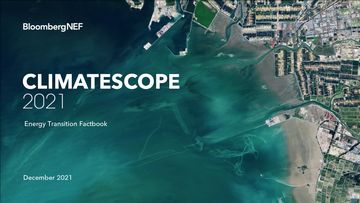Albania
With a cumulative score of 1.69, Albania ranks number 30 among emerging markets and number 59 in the global ranking.
- Emerging markets
- Europe
2.17 / 5
Power score
1.03 / 5
Transport score
0.92 / 5
Buildings score
Low-carbon strategy
Net-zero goal and strategy
Albania does not have a net-zero target. Instead, the country is focused on incorporating renewable energy, especially wind and solar, into its generation mix. Very little of Albania’s generation capacity is from fossil fuels; instead, the predominant technology is large hydro, accounting for around 95% of domestic capacity. In terms of final energy consumption the country had set a target for renewables to account for 38% of the total in 2020, up from 27% at present, rising to 42% in 2030.
Nationally Determined Contributions (NDC)
Albania’s initial ‘nationally determined contribution’ (NDC) aimed to decrease only CO2 emissions by 11.5% between 2016 and 2030 versus a business-as-usual (BAU) scenario. The scope was limited to the energy and industrial sectors, and excluded agriculture, forestry and land use, and waste. The country submitted a revised NDC in October 2021, with a target to lower greenhouse gas emissions by 20.9% by 2030 versus BAU. The updated NDC includes the previously omitted sectors within its scope.
Fossil fuel phase-out policy
Albania does not have a specific fossil fuel phase-out policy. The country did recently sign onto the Powering Past Coal Alliance, a coalition of governments and private sector entities which encourages ending the use of coal.
Power
Power policy
Albania’s power sector is dominated by hydro, although the government is encouraging the deployment of wind and solar through policies such as auctions, feed-in tariffs, and VAT exemptions. There was a power purchase agreement (PPA) for a 140 megawatt solar project in 2020, although this was never finalized. In 2021, there are currently plans for both solar and wind PPAs. All PAAs in Albania have a 15-year duration.
The country’s power policy is centered around renewable energy additions to the grid, as well as improving the overall grid. Albania has proven to be successful in this objective. The country sources most of its energy from renewable sources, mainly hydro, so a big challenge is bridging the remaining gap and keeping a stable grid because of the prevalence of renewables. Albania has recently borrowed money from the World Bank in order to improve its grid, ultimately putting utilities in debt.
Power policies
Power prices and costs
Albania decreased commercial and industrial electricity prices by 2.5% in 2020. Residential tariffs stayed constant and have been steady since 2016.
Power market
Albania’s wholesale power market is dominated by state-owned generation company KESH, which operates 79% of the country’s generation capacity. It supplies electricity to state-owned distributor OSHEE, which serves regulated customers. The competitive side of the wholesale market comprises independent producers, with some large customers receiving power via bilateral contracts.
while Albania has a 100% electrification rate, residential and commercial photovoltaics on rooftops have been increasing in recent years. Albania’s net metering policy applies to all households producing a maximum of 500 kilowatts. This was implemented to incentivize rooftop solar integration. Retail licenses are possible for those who wish to sell the electricity that they are generating.
Installed Capacity (in MW)
Electricity Generation (in GWh)
Doing business and barriers
OSHEE, the distribution system operator and supplier of electricity for regulated tariff customers, will act as the offtaker for new renewable projects. It is currently undergoing reform, using a loan from the World Bank to reduce its debt burden. This debt has accumulated as a result of low tariffs, electricity theft, and technical losses in the distribution system. OSHEE's perilous financial position means there is higher offtaker risk and any PPA will most likely be signed in conjunction with one, or several, government or World Bank guarantees. There is very little availability of data and transparency from the government, which creates a significant barrier to renewable energy growth in the country.
Albania has a very antiquated transmission system and some plants that are in need of modernization. The country is currently working with the World Bank to improve the safety of dams and their performance. This will increase the availability of these older plants, extend their lifetimes, and boost compliance with environmental safeguards.
Transport
EV market
Under Albania’s 2018 National Energy Strategy, the country is aiming to increase the share of electric vehicles (EVs) in its passenger car fleet to up to 10% of passenger kilometers traveled in 2030. There are very few charging stations in Albania at present, although it is working on a national network to provide support to EV owners. This is a very new initiative.
In order to incentivize EV uptake, Albania implemented a VAT reduction of 6% for electric minibuses and a VAT exemption for all new imported battery EVs in 2020. There are no other policies to encourage EV adoption, although very high taxes on fuel could provide a market incentive for consumers to switch to an EV.
EV policy
The government has yet to implement any substantive policy support in this sector and the EV market remains at an early stage.
Transport policies
Buildings
Buildings market
There is no clear data on how buildings are heated in Albania. However, policy suggests that most heat sources are not energy efficient, providing avenues for the Albanian government to incentivize low-carbon heating sources.
In 2021, the country mandated renovations for 3% of public sector buildings to meet the minimum requirements for energy performance. Public buildings are also required to clearly display their energy efficiency certificate. This is part of Albania’s Energy Performance of Buildings Directive, which provides guidelines for improving energy performance in the buildings sector.
Buildings policy
The government has yet to implement any substantive policy support in this sector and the low-carbon heating market remains at an early stage.

